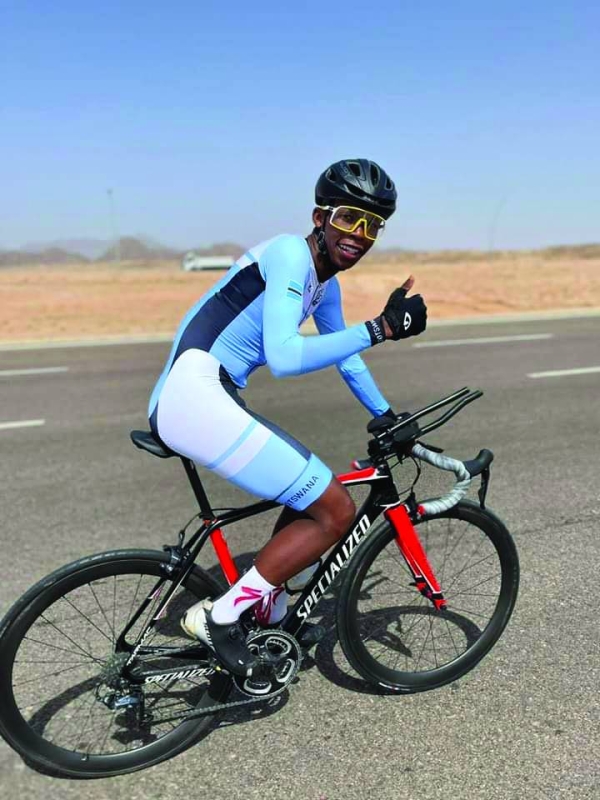Cycling faces funding challenges
Calistus Kolantsho | Tuesday October 22, 2024 09:08


However, the missions have not been without challenges. The BCA has always struggled to send a team to international competitions that can form a peloton due to financial issues. The predicament has forced the cycling body to send fewer competitors who stood no chance against other nations. Over the weekend, two cyclists, Gomolemo Kealotswe and Matlhogonolo Botlhole, returned from the Confederation of African Cycling Championships that was held in Eldoret, Kenya. Kealotswe was making his debut in continental championships in the Time Trial (TT) and finished in position 15 overall with a time of 50:11.103 in the men's Under-23. Botlhole was competing in the elite category. The two cyclists competed in the men’s road race, completing the 154km race. However, they finished outside the time limit, which means they did not complete the race within the specified time behind the winner. Reacting to the current state of cycling, the BCA president, Kagiso Potongwane, told MmegiSport that they have a lot of work before them. He said the biggest obstacle is lack of money.
“There are many factors that need to be addressed and we are working on that. We will not achieve good results overnight. It is a process. But participation gives our team exposure and experience, and also puts us in a better position to get assistance from the Confederation of African Cycling (CAC) and Union Cycliste Internationale (UCI), so given a chance we will always participate,” he said. Botlhole has been representing Botswana at different international events since he was at the Under-23 level. “We are grooming all our performing athletes for the future through club races, nationals, CAC, and UCI events. We closely monitor athletes’ performance and use a selection matrix for any competitions based on the consistency of the athlete, current performance and nationals’ performance. We give athletes who are ranked highest in our matrix, priority of selection whenever we have the opportunity to participate in competitions,” Potongwane said.
He added that in order for the BCA to send a larger team to international competitions, there is a need for funds. He said they are working around the clock to secure funding through sponsors to manage the challenges. He said the BCA grant from the Botswana National Sport Commission (BNSC) is not enough to allow them to meet the needs of the competitions. He added that even the BCA national championships cannot be funded by the grant. When asked about the amount that cycling received in the current financial year, Potongwane was cagey with the details, saying that it is internal information between the BCA and the BNSC. “I am not in a position to share but as far as I know, BNSC writes to the National Federations (NF) indicating how much we have been allocated but does not publicly inform everyone what each NF gets,” he said.
Potongwane said BNSC only reveals where each NF is in terms of tier but not the total grants. Reacting to his performance in Eldoret, Botlhole said it was the hardest championship ever because of the high altitude. Regarding competing against teams with many cyclists, Botlhole said it poses a challenge. “Cycling is a team sport, you cannot chase other cyclists alone, you need others to protect you. If you are good at finishing, others make sure that at the end of the race, you are not tired. If I am alone, I do everything. You cannot expect me to win anything under such an arrangement,” Botlhole said.
